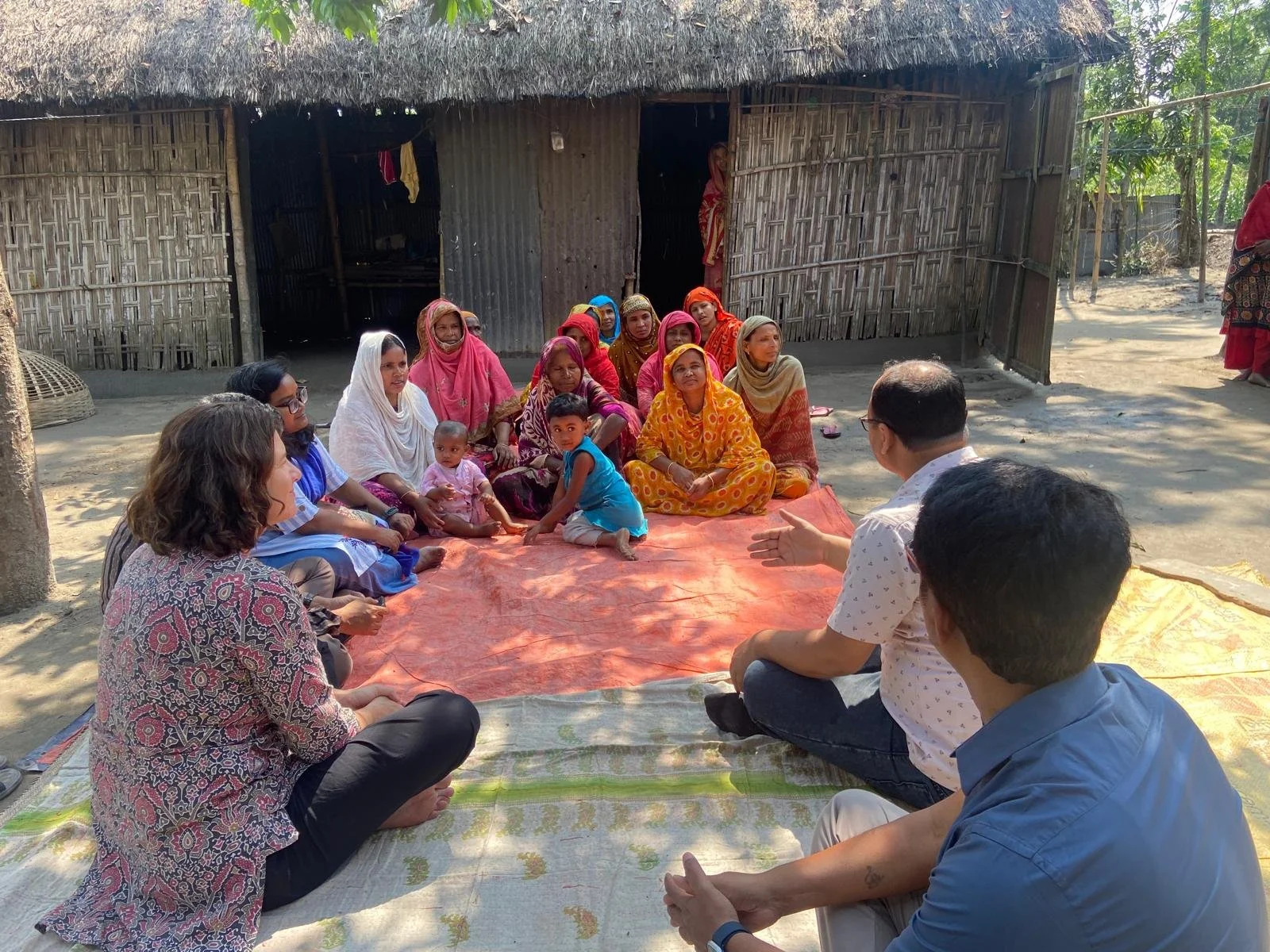Field Visits in India, Nepal and Bangladesh, April 2025
Project lead Tamara has visited field in all the three project areas. The purpose of the trip was to visit all project sites to monitor project activities and meet with partner organisations, and to attend the PAICE training workshops being delivered by CSIRO and funded by the Crawford Fund.
During a field visit to Koshi Province, meetings were held with CIMMYT staff to review activities over the past four months, including recruitment of AFU interns, field staff, and RAs/students, all of whom participated in a Gender Workshop that helped deepen their understanding of the Gender and Inclusion elements of the project. Other visits included meetings with MoIAC's Mr Pashupati Pokhrel and the NARC Research Station in Tarahara, where mechanization tools like the ZT maize planter are being utilized and further training planned. In village visits, ZT maize fields showed promising results, with farmers appreciating lower costs and good crop health, while efforts continue to boost demand for CHC machinery. Discussions also addressed challenges in the Dairy Pathway, especially milk oversupply, highlighting the need for value-added products and better communication of value chain outcomes to partners. The PAiCE training in Kathmandu for 25 participants was well attended by a cross-section of participants and showed an opportunity to share project outputs and lessons.
In West Bengal, I attended the PAiCE training for three days where a good range of University, Government and SSCOP participants attended to learn more about prioritising agronomic options for climate challenges in Cooch Behar. Following this, we also visited SSCOP and UBJV with the National Skills Foundation of India (NSFI) and Agriculture Skills Council of India (ASCI) to discuss the potential to run skills courses focused on Carbon Farming and Green Livestock Management that were developed in a separate project funded by the Department of Education.
In Bangladesh, CIMMYT colleagues and I visited RDRS and communities who are engaged in native poultry production. It was very interesting to hear about their experiences, both the benefits and challenges in implementation. A day trip to BAU allowed us to review specific research activities they are undertaking, and also meet the new Vice Chancellor, Professor AK Fazlul Haque Bhuiyan. This trip was very good preparation for the upcoming Annual Review and Planning Meeting to be held in May.

